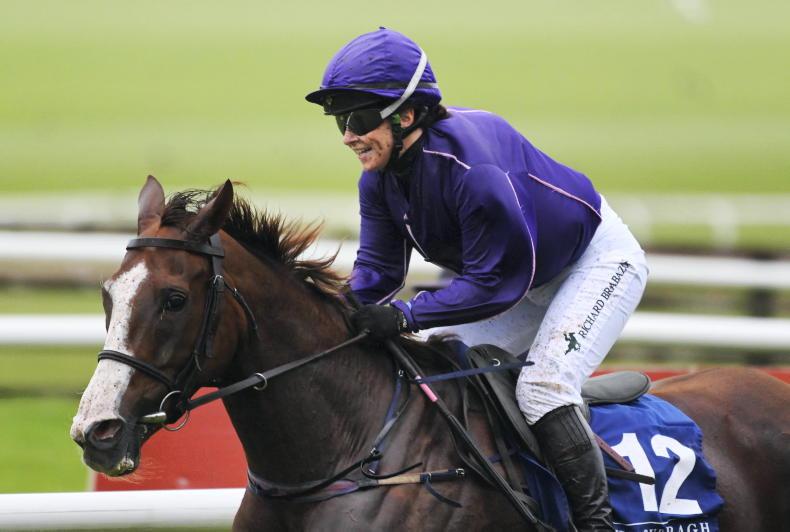Jonjo Bright is back on his feet.
The 21-year-old former amateur rider was left without the use of his legs after falling from his horse in a point-to-point in March 2013.
Left paralysed from the waist down, Bright showed courage and strength beyond his years to regain fitness in his upper body in the hope that a miracle solution could be found which would allow him to walk again.
A year ago that miracle looked within reach as Bright took part in a successful trial of an exoskeleton 'bionic' suit which saw him take 37 steps in front of his parents and friends.
Now the charity Irish Injured Jockeys (IIJ) has purchased an exoskeleton suit to help with the rehabilitation of injured riders like Jonjo who have suffered lower extremity paralysis. The investment was made some time ago and the suit has been in situ near Jonjo Bright's home in Neurokinex in Co Antrim for the past number of weeks. Neurokinex is a specialist rehabilitation centre that has more of a gym-like look and feel than a hospital.
Bright is the first jockey to use this piece of equipment. The suit enables him to stand in an upright position and to use his own body weight to walk in the machine with the guidance of a physio trained in Ekso Bionics also funded by the IIJ.
The suit has had major and immediate positive effects in terms of breathing and blood pressure whilst reducing muscle wastage, increasing bone density and, like any form of exercise, the endorphins it helps produce have superb psychological benefits also.
Speaking at a private demonstration Jonjo Bright said: “In a way we are exploring the unknown .... it’s massive that the Irish Injured jockeys have bought this piece of equipment. This is what I was dreaming of. It allows me to literally step into the unknown."
The cost for such a robotic therapy device is expensive, not to mention training the correct personnel in becoming highly proficient in operating the Exoskeleton suit and ensuring supervision of each individual session. For Irish Injured Jockeys and Jonjo Bright the benefits of such a device far out-weigh the cost involved.
Ruby Walsh, chairman of Irish Injured Jockeys, said: “It is important that people know that Irish Injured Jockeys is 100% funded by public donations and fundraising events, without this support we simply could not support our injured jockeys efficiently. There are lots of ways to help through donation, volunteering, fundraising or buying online."
At Galway Races, champion flat jockey and IIJ director Pat Smullen commented: “Enhancing the care and support given to jockeys is central to our purpose and the driving force behind everything IIJ does”.
WATCH JONJO WALK IN THIS FOUR-MINUTE VIDEO


 This is a subscriber-only article
This is a subscriber-only article
 It looks like you're browsing in private mode
It looks like you're browsing in private mode












SHARING OPTIONS: